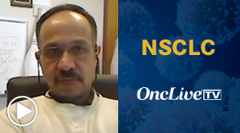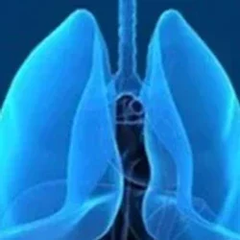
Dr. Spira on the Efficacy of Mobocertinib in Metastatic EGFR Exon 20–Mutated NSCLC
Alexander Spira, MD, PhD, FACP, discusses the efficacy of mobocertinib in metastatic non–small cell lung cancer that harbors EGFR exon 20 insertion mutations.
Episodes in this series

Alexander Spira, MD, PhD, FACP, a medical oncologist and director of the Virginia Cancer Specialists Research Institute and the Phase 1 Trial Program, discusses the efficacy of mobocertinib (formerly TAK-788) in metastatic non–small cell lung cancer (NSCLC) that harbors EGFR exon 20 insertion mutations.
Data from an ongoing phase 1/2 trial (NCT02716116) demonstrated an overall response rate of 26% per an independent review committee and 35% per investigator assessment with mobocertinib in previously treated patients with metastatic EGFR exon 20–mutated NSCLC. Notably, the trial evaluated mobocertinib in the second-line setting for patients who previously received platinum-based chemotherapy, says Spira.
Regarding safety, mobocertinib was associated with high rates of diarrhea and some mucositis, Spira explains. Although these adverse effects tended to be low grade, mobocertinib is an oral agent that is intended for long-term use. Therefore, even low-grade toxicities could be limiting, particularly in older patients or individuals with comorbidities, Spira concludes.
















































